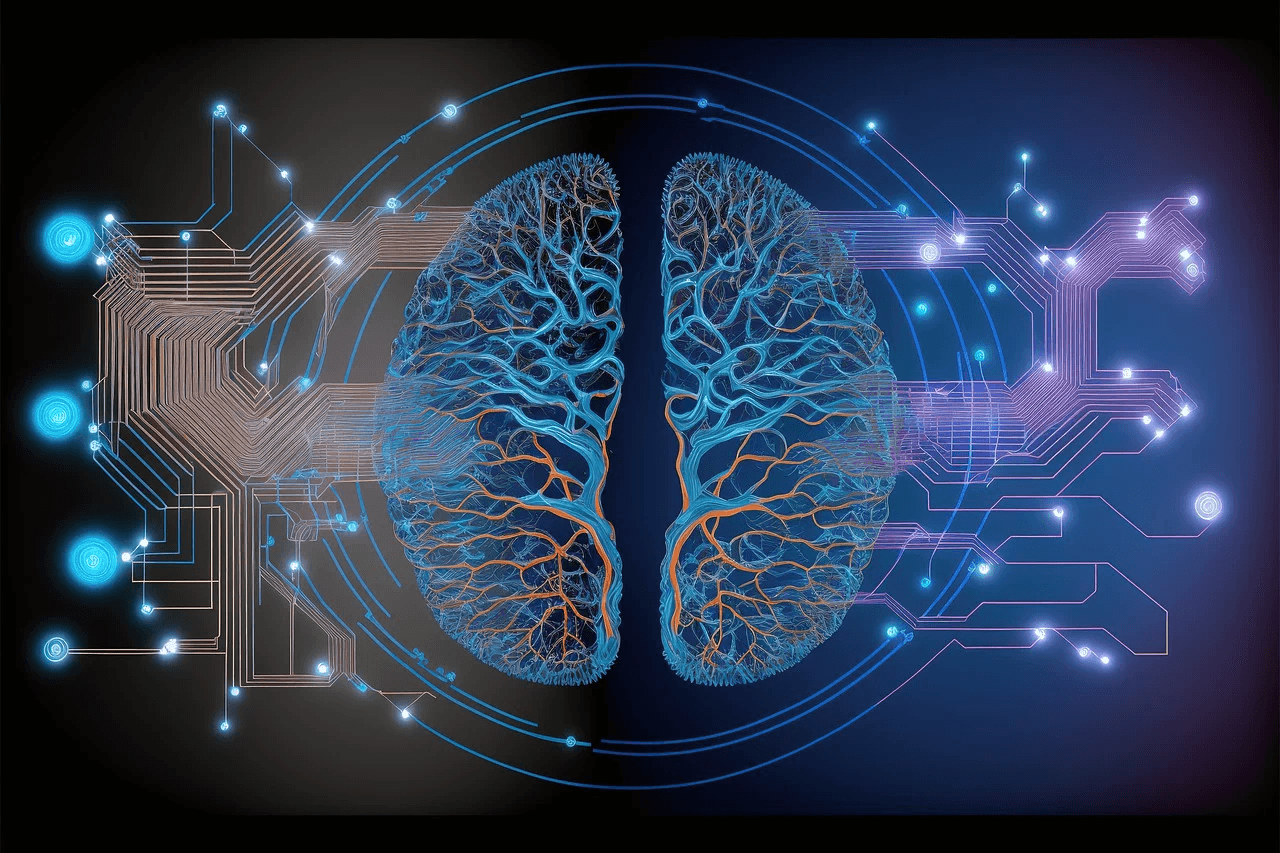
Neurological Treatments in the UK: Cutting-Edge Care for Brain Tumors
23 Jul, 2024
 Healthtrip Team
Healthtrip TeamWhen it comes to neurological conditions, particularly brain tumors, the quest for effective and innovative treatments is paramount. The UK has established itself as a leader in neurological care, offering state-of-the-art facilities and pioneering treatments. From groundbreaking surgical techniques to advanced therapies and cutting-edge research, the UK provides comprehensive care tailored to meet the needs of patients with neurological disorders. In this blog, we'll explore some of the top hospitals in the UK known for their exceptional neurological care, with a focus on brain tumours and other neurological conditions.
Most popular procedures in India
1. Advancements in Brain Tumor Treatment
The field of brain tumor treatment has come a long way, offering patients not just hope but real, tangible improvements in outcomes and quality of life. Thanks to recent innovations, the future of brain tumor care looks brighter than ever. Let’s dive into some of the key advancements shaping this field:
Wellness Treatments
Give yourself the time to relax
Lowest Prices Guaranteed!

Lowest Prices Guaranteed!
A. Surgical Innovations
i. Minimally Invasive Surgery
Minimally invasive surgery has revolutionized how brain tumors are treated. Gone are the days when open brain surgery meant large incisions, long recovery times, and a higher risk of complications. Today, surgeons can perform procedures through much smaller openings, thanks to advanced endoscopic tools.
This approach, known as neuroendoscopy, uses a thin, flexible tube equipped with a camera and surgical instruments. It allows surgeons to navigate the brain and remove tumors with incredible precision, especially in deep or challenging areas. The benefits? Less trauma to healthy brain tissue, shorter recovery times, and a reduced risk of complications.
ii. Neurosurgical Navigation Systems
Neurosurgical navigation systems are like having a GPS for the brain. These systems combine real-time imaging with computer-assisted navigation to guide surgeons with remarkable accuracy. By creating a detailed map of the brain and pinpointing the tumor’s location, these systems help avoid damage to critical areas and enhance the precision of tumor removal.
Using preoperative MRI or CT scans, these systems create a 3D model of the brain. During surgery, real-time data is overlaid onto this model, allowing surgeons to track their progress and adjust as needed. This level of precision is crucial for tackling complex tumors near vital brain functions.
B. Radiotherapy and Radiosurgery
i. Gamma Knife Radiosurgery
Gamma Knife radiosurgery is a groundbreaking, non-invasive treatment that uses highly focused gamma rays to target and destroy tumor cells with pinpoint accuracy. It's particularly effective for small to medium-sized tumors and those located in delicate or critical areas of the brain where traditional surgery might pose too many risks. The procedure typically involves a single, high-dose session of radiation, which can be done on an outpatient basis.
The real advantage of Gamma Knife radiosurgery lies in its precision. It delivers high doses of radiation directly to the tumor while minimizing exposure to surrounding healthy tissue. This targeted approach helps reduce side effects and protects critical brain structures from damage.
ii. CyberKnife Technology
CyberKnife represents another leap forward in radiosurgery, utilizing a robotic system to deliver highly targeted radiation to tumors. Unlike Gamma Knife, CyberKnife offers flexibility by allowing radiation to be administered from various angles. The robotic system is designed to adapt in real-time to the patient's movements, ensuring that radiation is delivered accurately throughout the procedure.
This technology is particularly useful for treating tumors that are hard to reach with conventional methods. Its ability to deliver precise radiation while adjusting for patient movement makes it a valuable tool for addressing complex and challenging cases.
C. Chemotherapy and Targeted Therapy
D. Immunotherapy
i. CAR-T Cell Therapy
CAR-T (Chimeric Antigen Receptor T-cell) therapy is revolutionizing cancer treatment by harnessing the power of a patient’s own immune system. In this innovative approach, T cells are modified in the lab to express a special receptor that targets specific proteins on tumor cells. This therapy has shown great promise in treating certain brain tumors, including glioblastoma.
A notable example is the case of Ivan Petrov from Russia. He underwent CAR-T cell therapy at a leading UK hospital for a particularly aggressive glioblastoma that had not responded to conventional treatments. After the therapy, Ivan saw significant tumor reduction and improved quality of life, highlighting CAR-T’s potential for patients with previously untreatable tumors.
ii. Checkpoint Inhibitors
Checkpoint inhibitors are a type of immunotherapy that helps the immune system recognize and attack cancer cells more effectively by blocking proteins that normally prevent this action. These drugs are being studied to boost the body’s natural defence mechanisms against brain tumors.
One inspiring case is that of Ekaterina Ivanova, also from Russia, who participated in a clinical trial involving checkpoint inhibitors at a prestigious UK research center. Her treatment showed a favourable response, demonstrating the potential of these therapies to benefit patients worldwide.
The field of brain tumor treatment is advancing rapidly, with significant strides in surgical techniques, radiotherapy, chemotherapy, targeted therapies, and immunotherapy. These innovations are not only providing new hope for patients but also improving outcomes and quality of life. As research progresses, the future looks promising, with even more advanced therapies on the horizon for patients around the globe.
3. Top Hospitals in the UK for Neurological Treatments
1. The National Hospital for Neurology and Neurosurgery
Located in London, The National Hospital for Neurology and Neurosurgery is a leading center for the treatment of neurological conditions. Renowned for its expertise in brain tumor care, the hospital offers advanced surgical techniques, state-of-the-art radiotherapy, and a range of innovative treatments. It is also a hub for cutting-edge research and clinical trials.
2. Kings College Hospital
Kings College Hospital, also based in London, is recognized for its comprehensive approach to neurological care. The hospital’s specialized departments provide advanced treatments for brain tumors, including minimally invasive surgeries and targeted therapies. Kings College Hospital is also involved in pioneering research and offers access to the latest clinical trials.
3. Addenbrooke's Hospital
In Cambridge, Addenbrooke’s Hospital is known for its excellence in brain tumor treatment. The hospital combines advanced medical care with research and education, providing patients with access to the latest treatments and technologies. Addenbrooke’s Hospital is a key player in the field of neurological care and research.
4. Royal Hallamshire Hospital
Located in Sheffield, the Royal Hallamshire Hospital is renowned for its innovative approaches to treating neurological conditions. The hospital’s focus on research and advanced treatment options makes it a top choice for patients seeking cutting-edge care for brain tumors. The hospital is committed to improving patient outcomes through ongoing research and development.
5. St George’s Hospital
St George’s Hospital in London offers comprehensive neurological care, including advanced treatment techniques and multidisciplinary team approaches. The hospital’s commitment to patient care and innovation ensures that patients receive top-quality treatment and support throughout their journey.
4. Patient Care and Support Services
i. Multidisciplinary Teams
The treatment of brain tumors often requires a multidisciplinary team approach. This team may include neurosurgeons, oncologists, radiologists, and neurologists who work together to provide comprehensive care. This collaborative approach ensures that all aspects of the patient’s condition are addressed, leading to more effective treatment and improved outcomes.
ii. Rehabilitation Services
Rehabilitation is a crucial component of brain tumor care, helping patients recover and adapt to changes resulting from their condition or treatment. Services may include physical therapy to improve mobility, occupational therapy to assist with daily activities, and speech therapy to address communication challenges. Comprehensive rehabilitation services support patients in achieving the best possible quality of life.
iii. Psychological Support
Facing a neurological condition, particularly a brain tumor, can be emotionally challenging for both patients and their families. Psychological support is essential in helping individuals cope with the emotional and psychological impact of their diagnosis and treatment. Services may include counselling, support groups, and mental health resources to provide comprehensive support throughout the treatment process.
5. Research and Future Directions
i. Ongoing Research
The UK is at the forefront of neurological research, with numerous studies and clinical trials aimed at improving treatments for brain tumors. Research focuses on developing new drugs, refining surgical techniques, and exploring innovative therapies. This ongoing research is critical in advancing the understanding and treatment of brain tumors.
ii. Future Innovations
Emerging technologies such as artificial intelligence (AI) and advanced imaging techniques are poised to revolutionize brain tumor treatment. AI can enhance diagnostic accuracy and personalize treatment plans, while advanced imaging techniques offer more detailed views of tumors, improving surgical precision and treatment planning.
The UK stands as a global leader in providing cutting-edge care for brain tumors and other neurological conditions. With advancements in surgical techniques, radiotherapy, chemotherapy, immunotherapy, and patient support, the country offers comprehensive and innovative treatment options for those facing these complex conditions. The top hospitals highlighted in this blog are at the forefront of this progress, providing exceptional care and contributing to ongoing research and development.
For individuals seeking expert care and the latest treatment options for neurological conditions, the hospitals mentioned here represent some of the best choices available in the UK. Exploring these top institutions can be the first step toward accessing advanced care and achieving improved outcomes.
Related Blogs

Revolutionizing Neurosurgery in Istanbul: NPISTANBUL Brain Hospital
NPISTANBUL Brain Hospital is leading the way in neurosurgery with

The Benefits of Robotic Surgery
How robotic surgery is revolutionizing urological procedures

Corrective Osteotomy: A Minimally Invasive Solution
Discover the benefits of minimally invasive corrective osteotomy surgery and

Transforaminal Lumbar Interbody Fusion (TLIF) and Minimally Invasive Surgery
Discover the benefits of Transforaminal Lumbar Interbody Fusion and minimally

The Benefits of Retrograde Intrarenal Surgery
The advantages of Retrograde Intrarenal Surgery for kidney stone treatment

Minimally Invasive Pancreatic Surgery
Learn about the benefits and procedure of minimally invasive pancreatic










